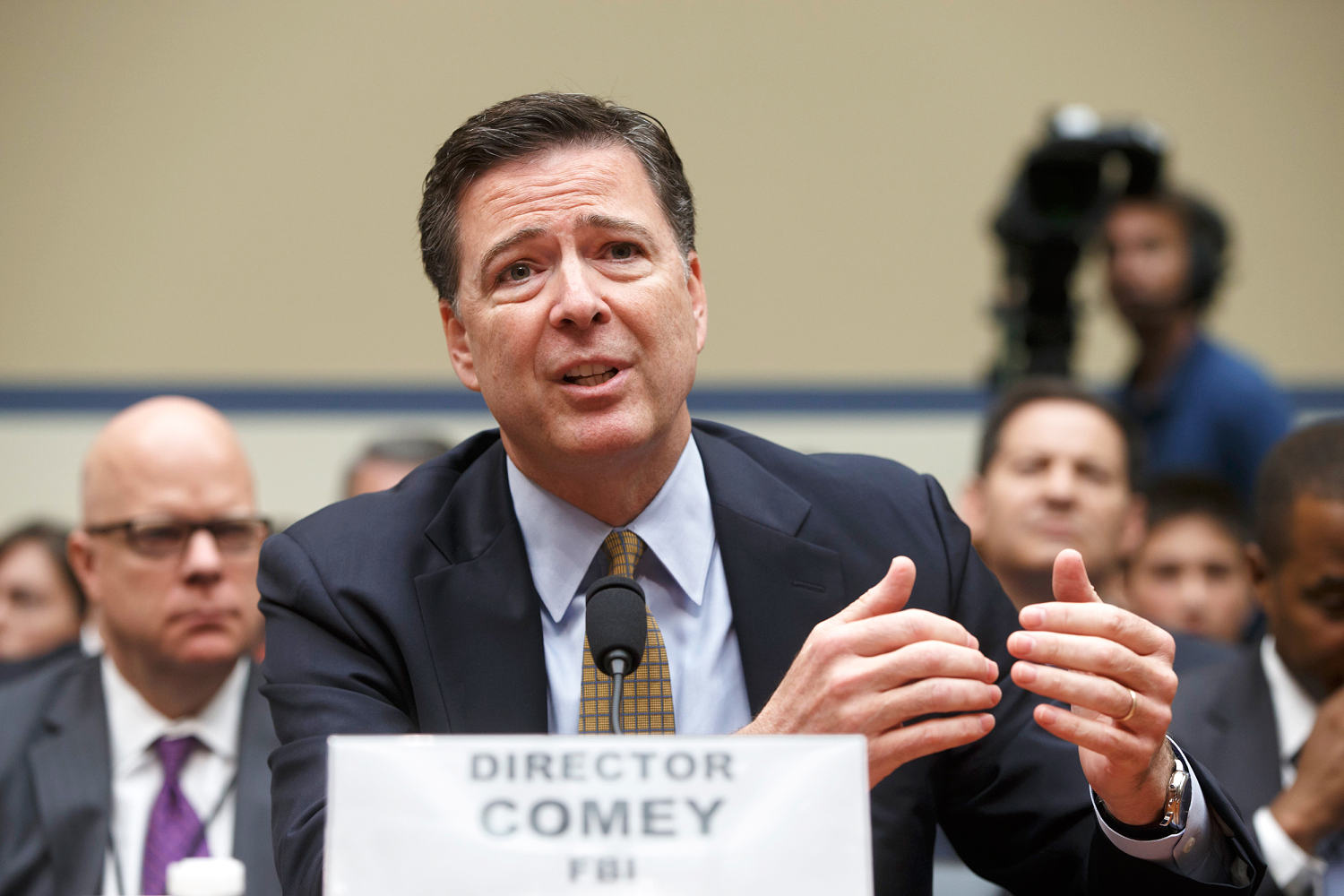I vividly recall the day James Comey released his letter on October 28, 2016. I was dining at a health food restaurant with a Republican friend of mine when the news hit me like a ton of bricks. “This is going to cost her the election,” I lamented to my friend, a sinking feeling settling in my stomach. The implications of a Donald Trump presidency weighed heavily on my mind, not just for women but for all of us.
My friend, perhaps leaning towards Trump, dismissed my concern with a casual, “Don’t be silly.” The front page of The New York Times screamed the headline: “Emails in Anthony Weiner Inquiry Jolt Hillary Clinton’s Campaign.” And on November 8, 2016, Clinton lost to Trump 304 to 227.
The Comey letter injected just enough uncertainty to paint both candidates with the same brush of ethical ambiguity.

Robert Hur (Credits: The Wall Street Journal)
It was this false equivalence that propelled Trump to victory, a sentiment echoed by data expert Nate Silver, who asserted that the letter “was probably enough to change the outcome of the Electoral College.” Comey, initially a pariah, transformed into a resistance hero, capitalizing on his remorse all the way to the bank.
Fast forward to February 8, 2024, when Republican special counsel Robert Hur released his exhaustive 345-page report. While some view the report as an exoneration, absolving President Joe Biden of criminal charges in the classified documents case, Hur, a former Trump administration member, couldn’t resist casting doubt, particularly with 269 days left before an election.
Aligning with a Republican Party largely tethered to the former president, Hur delivered for his party. Though he found no legal grounds for charges against Biden, he seized the opportunity to editorialize extensively on Biden’s mental acuity, regurgitating right-wing rhetoric.
He mused, “[At] trial, Mr. Biden would likely present himself to a jury, as he did during our interview of him, as a sympathetic, well-meaning, elderly man with a poor memory.”
Claiming memory lapses during depositions is commonplace. Dr. Anthony Fauci, for instance, cited “I don’t recall” 174 times during a deposition on alleged collusion between the Biden administration and social media platforms. However, since there’s no age-related narrative surrounding Fauci crafted by Trump’s camp, his memory lapses are largely ignored.
Hur’s report reeks of partisan bias, though its impact is undeniable, as former Obama chief of staff Jim Messina cautioned against falling into the same trap as with Comey’s actions in 2016. Hur, a lifelong Republican, lacked a legal case against Biden but knew precisely how his insinuations could damage Biden politically.
Joe Scarborough aptly summarized, “He couldn’t indict Biden legally, so he tried to indict Biden politically.” Yet again, a Republican special counsel tipped the scales, reminiscent of Comey’s intervention in 2016. Hur, no neurologist, is ill-equipped to assess Biden’s mental acuity.
Former attorney general Eric Holder decried the report’s gratuitous remarks, asserting they contradict DOJ norms. Garland’s acquiescence to this partisan charade is disappointing.
Democrats, in their outrage, must reflect on their own missteps. Garland’s appointment of a Republican special counsel and subsequent approval of Hur’s report, brimming with right-wing rhetoric, were avoidable.
The aftermath of the Comey letter saw endless speculation about its contents, distracting from substantial issues. Democrats find themselves outmaneuvered in a landscape marred by hyperpartisanship, while Republicans, emboldened by Trumpism, are resolute in their pursuit of power. To ignore this reality is folly.
The lessons of the Comey era should serve as a cautionary tale. If Democrats wish to triumph, they must confront the stark reality of today’s political landscape, lest history repeats itself as a curse rather than a lesson.























